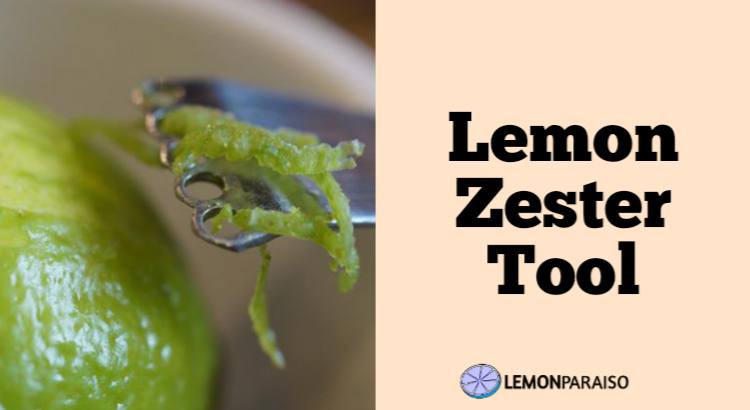Do Lemon Trees Grow In Iowa?
Lemon trees are a beautiful addition to any garden, producing fragrant flowers and delicious fruit that can be used in a variety of recipes. However, many people are uncertain whether lemon trees can be grown in their particular region, such as Iowa.
Can Lemon Trees Grow In Iowa?
Lemon trees can grow in Iowa, but it is not an ideal environment due to the state’s cold winters and temperature fluctuations. These trees are typically suited for warmer climates, such as USDA hardiness zones 8-11.
However, with careful attention to proper planting, care, and protection from harsh weather conditions, it is possible for lemon trees to thrive in Iowa. Gardeners may also consider growing dwarf varieties or using a container to allow for easier transportation indoors during winter months. With the right precautions, Iowans can enjoy the beauty and fruit of lemon trees.
What Are The Ideal Growing Conditions For Lemon Trees In Iowa?
The ideal growing conditions for lemon trees in Iowa would involve providing ample sunlight, well-draining soil, and protection from extreme temperatures. These trees need at least 6-8 hours of sunlight per day to grow and produce fruit.
A well-draining soil, rich in organic matter, will help prevent root rot and other issues related to poor drainage. Additionally, providing shelter from strong winds and utilizing frost protection methods, such as covering the tree with a frost blanket or using a heat source, can help protect the trees during Iowa’s colder months.
Are There Any Varieties Of Lemon Trees That Can Grow In Iowa?
There are a few varieties of lemon trees that are more adaptable to the climate in Iowa. The Improved Meyer Lemon, Ponderosa Lemon, and Lisbon Lemon are some examples of hardier varieties that can better withstand colder temperatures.
These trees can be grown in containers, making it easier to move them indoors during the winter or to a sheltered location during extreme weather events. Selecting a hardy variety is crucial for success in growing lemon trees in Iowa.
How Long Does It Take For A Lemon Tree To Bear Fruit In Iowa?
The time it takes for a lemon tree to bear fruit in Iowa can vary depending on the specific variety and the conditions in which it is grown. Generally, lemon trees begin to bear fruit within 3-5 years of planting.
However, in Iowa, the colder climate and shorter growing season may delay fruit production. Providing optimal growing conditions, such as sufficient sunlight, well-draining soil, and protection from extreme temperatures, can help increase the chances of fruit production in the state.
What Are The Challenges Of Growing Lemon Trees In Iowa?
Growing lemon trees in Iowa presents several challenges, including the cold winters, fluctuating temperatures, and shorter growing season. Lemon trees are not frost-tolerant, and exposure to freezing temperatures can cause significant damage or even death.
To mitigate these challenges, gardeners need to provide adequate protection, such as moving container-grown trees indoors during the winter or using frost blankets for outdoor trees. Ensuring proper care and attention to the specific needs of lemon trees is essential for success in Iowa’s climate.
Can Lemon Trees Be Grown Indoors In Iowa?
Lemon trees can be grown indoors in Iowa, making it possible for residents to enjoy the beauty and benefits of these trees despite the state’s challenging climate. Dwarf varieties, such as the Improved Meyer Lemon, are particularly well-suited for indoor cultivation.
When growing lemon trees indoors, it is crucial to provide a sunny location with at least 6-8 hours of direct sunlight or supplement with a grow light. Proper care, including regular watering, fertilizing, and pest control, will help ensure a healthy, fruit-bearing tree.
What Is The Best Time To Plant Lemon Trees In Iowa?
The best time to plant lemon trees in Iowa is during the late spring or early summer when the risk of frost has passed. Planting at this time allows the tree to establish itself and grow strong before the colder months arrive. It is essential to monitor the weather closely and wait for a consistent period of warm temperatures before planting.
This timing will give the lemon tree the best chance of survival and growth in Iowa’s climate. Be prepared to protect the young tree from any unexpected late frosts or extreme temperature fluctuations during the initial planting period.
How Do You Care For Lemon Trees In Iowa?
Caring for lemon trees in Iowa requires attention to proper watering, fertilization, pruning, and protection from cold temperatures. Water the trees deeply and regularly, ensuring that the soil remains moist but not waterlogged.
Fertilize with a slow-release, balanced fertilizer or a citrus-specific fertilizer during the growing season to promote healthy growth and fruit production. Prune the trees to maintain their shape and size, as well as to remove any dead or damaged branches.
Finally, protect the trees from Iowa’s harsh winters by moving container-grown trees indoors or using frost blankets and other methods to shield outdoor trees from freezing temperatures.
Are There Any Tips For Growing Lemon Trees In Iowa?
Growing lemon trees in Iowa can be rewarding with the right approach and care. Here are some tips for success:
- Choose a hardy variety, such as the Improved Meyer Lemon, which is better adapted to colder climates.
- Plant the tree in a location with at least 6-8 hours of direct sunlight and well-draining soil.
- Use containers for easier transportation indoors during the winter months, or be prepared to provide frost protection for outdoor trees.
- Water consistently, ensuring the soil remains moist but not waterlogged.
- Fertilize regularly during the growing season with a slow-release, balanced fertilizer or a citrus-specific fertilizer.
- Prune the tree to maintain its shape, size, and overall health.
- Monitor for pests and diseases, and take action promptly to prevent any issues from escalating.
By following these tips and providing the necessary care, growing lemon trees in Iowa can be an enjoyable and fruitful endeavor.



